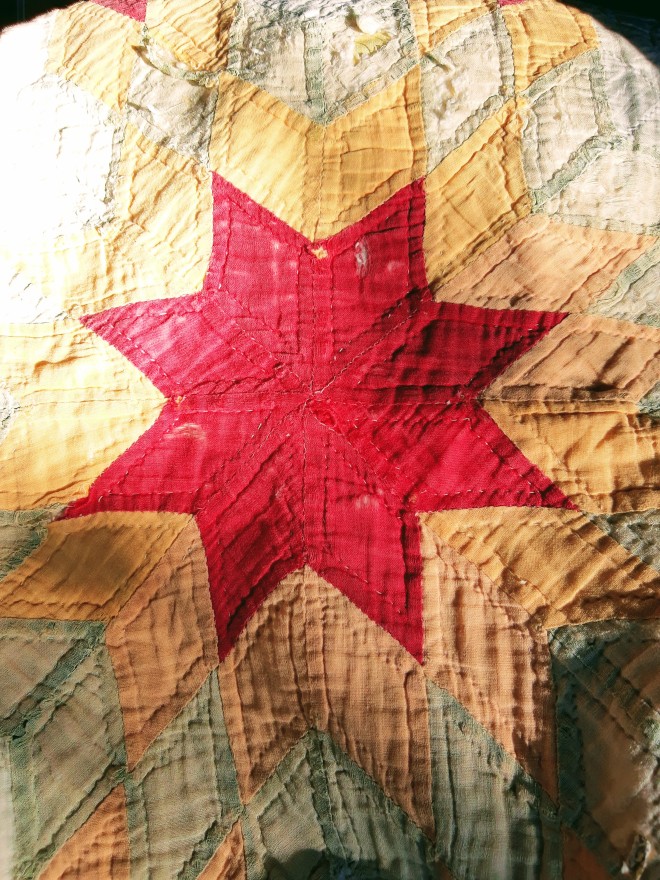
One of the strangest aspects of my work as a chaplain this year is bagging up belongings of those who come to the emergency department for serious injuries or traumas. There is a protocol where medical staff cuts off all clothing, and places them with all personal belongings in a basket. As a chaplain, I have two jobs in this process. One is to call family members and care for them, and the other is to take the basket, to organize and chart all of the belongings, and to gather them into a bag to be given to loved ones or to the patient. I am told that it’s a fairly unique thing about our hospital for chaplains to do the work of handling belongings, and the rational is that clergy have the moral authority to handle valuables.
What I am most struck by in the process is the visceral experience. The smell of anxious body odor, the feel of bodily fluids (even through the gloves I’m wearing), the sadness of a cut up pair of Carhart jeans. Part of what’s troubling is the evidence of simple daily life interrupted by trauma; work keys, mints, checkbooks. I often smile as I am folding up underwear. It’s that classic moment that everyone worries about as we evaluate the state of our underclothes (what if I end up in the hospital, what will they see?) During orientation, we were taught to give everything back to family, no matter what it looks like, because you never know what will be important to them.
My instinct is to hate this process, to run away, to get angry and wonder, “why on earth is this my job????”
Early on, I was being oriented to this aspect of the job by another chaplain. The clothing had blood on it (we have special red bags for that to alert family members). So I was racing to bundle up the cut up clothing and tie off the bag. The chaplain who was with me said, “now I always take a little time and fold these things neatly. It really matters to the people who receive it.” I reluctantly pulled out the ball of clothes and started again, folding each piece with care. I found a squishy bulge in a pocket, I reached in to find a smashed banana. I laughed and cried at the same time (relieved it wasn’t something worse, aching because this poor man set off on his day with a banana in his pocket and look where he ended up?)
The chaplain standing beside me said, “go ahead and pull it out, that part we can throw away.” She then had me wipe down the inside of the pocket, so I could fold the coat up neatly with the other things.
I learned a few days later that this patient didn’t survive. These belongings we turned over to family were the last tattered pieces of their husband/father/grandfather’s life. Such holy relics. Of course they should be blessed, folded neatly and treated with care.
I’m getting to know myself in ways I never expected. I’ve found that my own haste in getting done with the task and being grossed out by it is really about the fear I harbor for my own death, my own squished banana, my own tattered pieces.
And all I can do is bless them.
Chaplaincy is giving me a keener sense of what it means to be human. Sometimes that causes in me deep dread and awareness of our brokenness. Other times I feel inexplicable joy and gratitude. My most recent prayer has simply been, “Thank you God for making me human. Bless our coming and our going, and the tattered pieces in between.”
I love this, Lindsey. I appreciate their reasoning for having a chaplain handle the belongings. For myself, it was these little touches of grace that enabled me to survive the trauma and following grief. Thank you.
LikeLike
Thanks for sharing that Peggy. I love the phrase, “little touches of grace.” May you continue to find them on your journey!
LikeLike
Touched by your words. So many aspects of trauma that we don’t think of until we are in the midst of it, or more likely, when we are reflecting back on what happened or didn’t happen. Blessings as you continue to delve deeper into these kinds of opportunities. I also love the phrase ‘touches of grace’.
LikeLike
Thanks Jean for this reflection. You bring up a good point that it’s usually not until after the event has passed that folks are able to make meaning of what happened, and to identify those “touches of grace” where they can identify God’s presence and find hope.
LikeLike
I like it Lindsey but once again words are inadequate, I’m sure, to describe it all adequately. Blessings top you
LikeLike